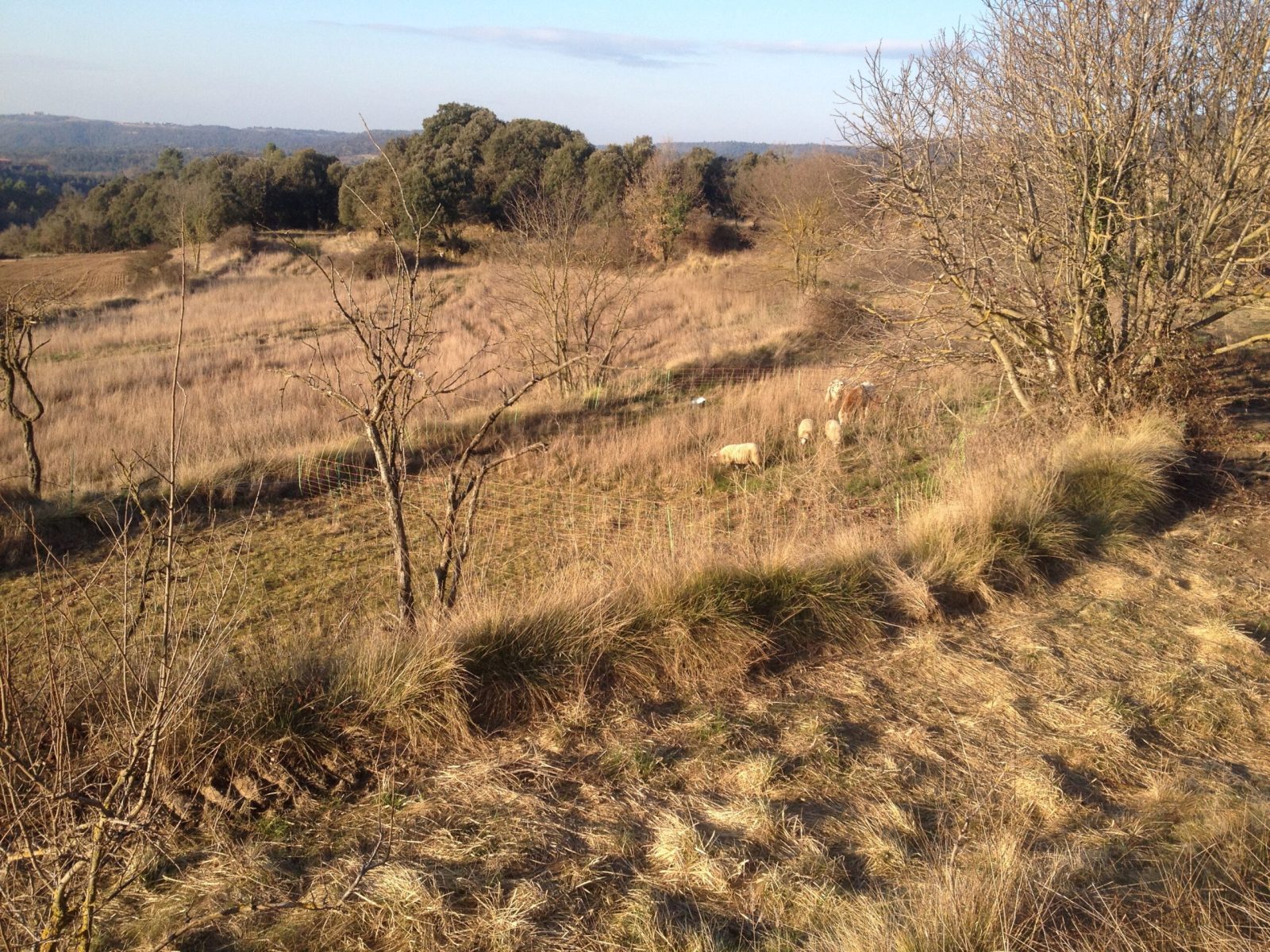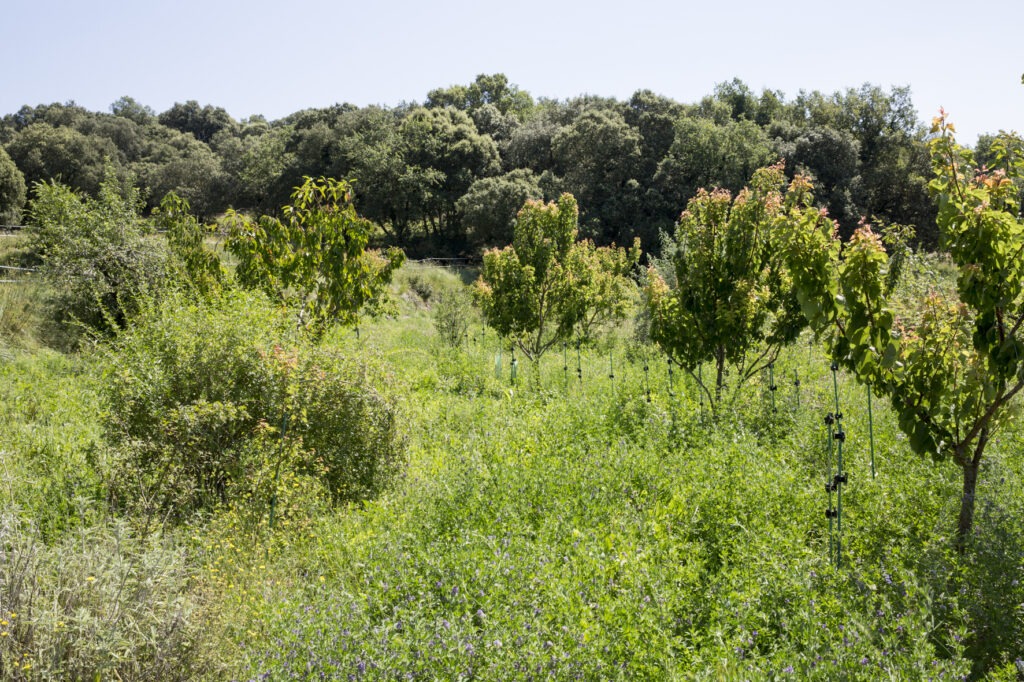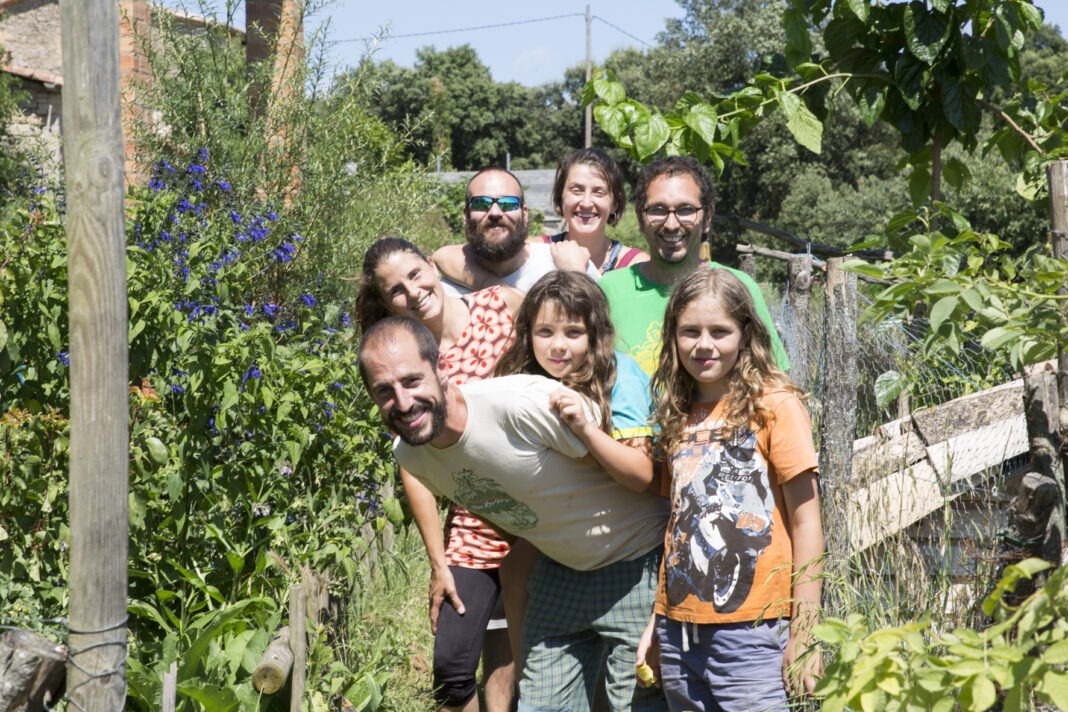SPAIN. Catalonia. Ariadna Tremoleda and Sergi Caballero lived in the city of Barcelona until twelve years ago when they expected their first-born. To offer a better environment for their child to grow, they decided to act on their dreams by moving to the countryside. Then, they studied and learned from the experience of others. Joined by another family, they settled seven years ago in a 200-year-old abandoned Masia, a traditional Catalan farm-building. Transcontinental Times interviewed co-founders and community members to gather insight into a personal choice that shaped their social and natural environment.
The beginnings of a life-changing project
They moved into a house that was unfit to live in. Locals used the property as a dumpster, and nettle and thistles covered the land making it hazardous to walk in. Industrial farms surround them, and the soil had lost its natural fertility.
After initial discomfort, they managed to feel at home in a thriving environment within two years, more or less, when Robert Fontan joined the project at Mas Les Vinyes.

Permaculture guidelines focus on efficiency
Permaculture principles stem from three ethics: earth care, people care, and fair share. In co-founder Ariadna’s words, “permaculture is a design system of spaces that generates more energy than that needed to sustain them.” At Mas Les Vinyes, they optimize the efficiency of their land production. They adapt to the natural rhythms and characteristics of every plant, animal, and human that grows within the landscape. Permaculture design helps diminish maintenance work by creating sustainable ecosystems. Their land stays green and fertile when that of their neighbors decays drought after drought. They are used to solar panels, dry toilets, and greywater treatment process. Thus they gather energy for immediate use and decompose all human waste. Nothing is lost, and everything has a place in Mas Les Vinyes.
As they say, the problem is the solution, and if you do not enjoy what you do, better start doing something else. They are economically viable and can invest with the resources their system generates. In every square meter of the land they manage, biodiversity thrives in abundance. And the latter enriches not only them, but their neighbors and visitors too.

A self-sufficient project that has a social impact
As co-founder Sergi explains, “[we] went from a family to a community.” Mas Les Vinyes learns from the local knowledge, and their neighbors benefit from the effectiveness of permaculture design. Public entities hire their co-operative for local consultancy. And many young local people can today reconsider staying in their villages; they have evidence it can be economically productive.
Claudia Nieto is one of two volunteers at the farm at the time of the interview. She explains that their community goes beyond a local impact by hosting volunteers and teaching permaculture to people from all over Europe, America, and Australia.
Community highlights personal qualities
Robert, one of the first co-operative members, tells us that “a community makes an individual greater, strengthens their abilities and accompanies their defects.” They talk about happiness and satisfaction as natural parts of their everyday life. They have moved from working to living, stopped counting working hours and having titles, and forgot about taking holidays. Therefore, they have no need to escape stressful lives; they are where they want to be.
Is moving to the village necessary for this state of bliss? Permaculture’s answer is no. According to Pol Potsi, another volunteer, “permaculture adapts to any context.” Cooperation networks and mutual aid work in a city context. And these tools empower and sustain a community. Also, there is no need to find your piece of land; the city does already accommodate horticulture production in balconies and urban gardens. It might just be a question of better managing available resources.
The collapse is here: get real and learn permaculture
We face a major environmental crisis at a scale difficult to fathom. Governments fail to implement effective financial and political changes. In the meantime, many around the world have been working on real and lasting solutions.
Ariadna, Sergi, and their large community seem not to adhere to an apocalyptic and catastrophic view. According to them, “the collapse is a gradual process that diminishes resource availability and widens the privileges gap.” The collapse,” they claim,” has already begun and it is not happening at the same time in the same places.”
Permaculture can help us face the future with optimism and an abundance of resources for all. “Permaculture,” they explain,” offers the real possibility of reconnecting social networks, empowering communities and individuals, and covering basic needs while ecosystems regenerate.”
The environmental and social impact of this project is tangible and consistent. Land restoration, support of vital ecosystems, improved fertility and production optimization, closed cycle waste management, economical perspective for locals, knowledge preservation. What Mas Les Vinyes community shows us is that motivation and community can make us walk the dream of a more fulfilling life. Theirs is a life that has a place for everyone, and a future.



